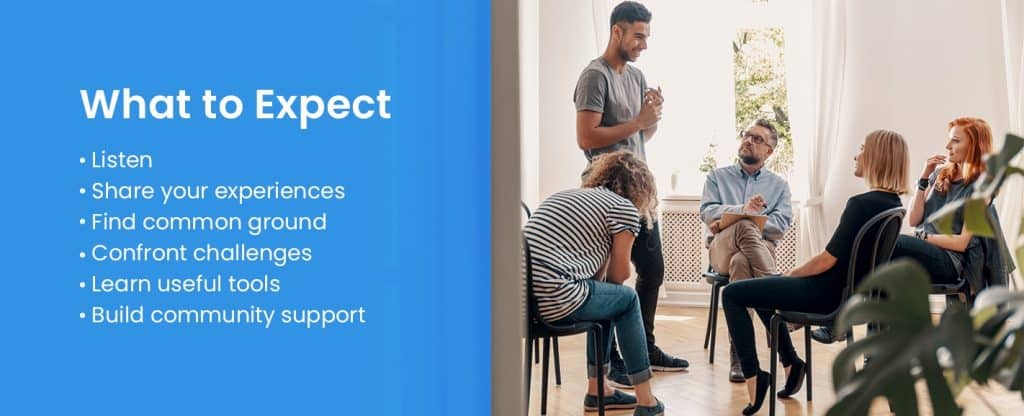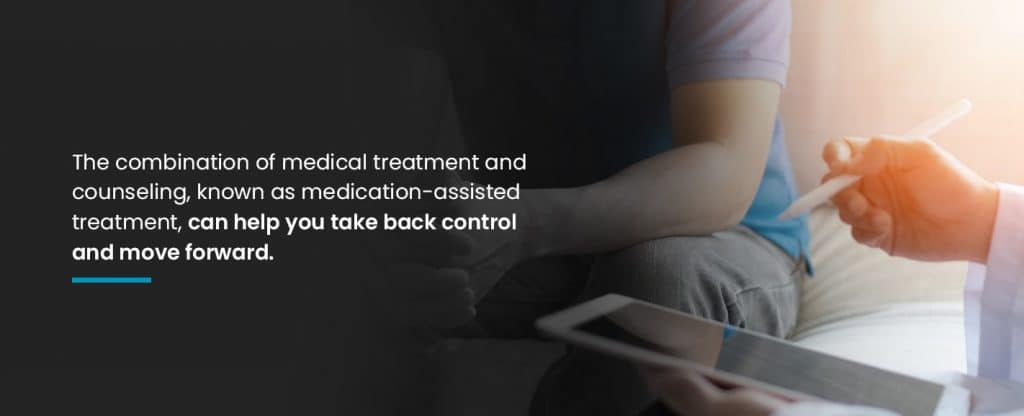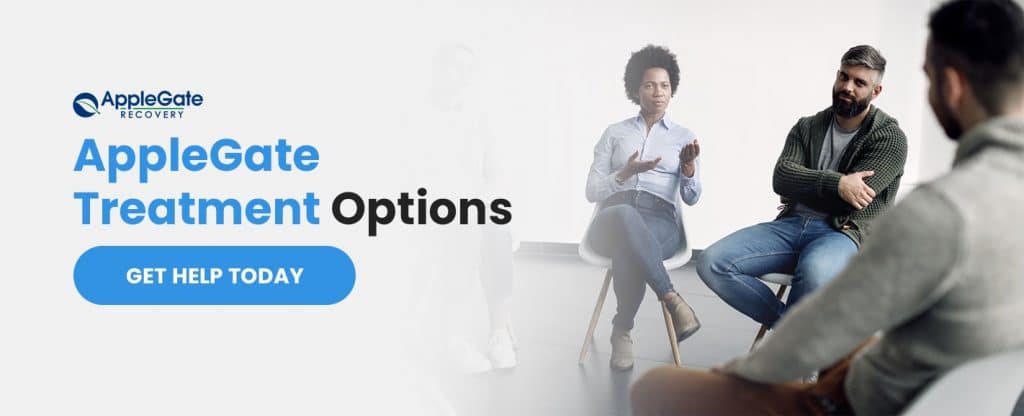The opioid crisis continues to affect millions of lives. Approximately 8 to 12% of people who use opioids to manage their chronic pain will develop an opioid use disorder. While struggling with opioid addiction is challenging, treatment is possible. Recovery from substance use takes time and various approaches. Patients may need medications, such as buprenorphine, methadone and naltrexone, to safely transition away from opioid use.
However, medication is not the only element of treatment. Counseling also plays a pivotal role in recovery. Counseling can benefit you and your family, but group recovery for opioid addiction is also a powerful tool. What happens in group therapy, and what can you expect from this type of treatment?
The Importance of Group Recovery
Opioid group recovery gives you a safe, supportive environment to listen to and share with others who have had experiences similar to yours. During group recovery, you will build a peer network. Every participant will have a judgment-free place to talk through their challenges, goals and successes. You will gain and give perspective, allowing yourself to hope for and celebrate the progress you and the other group members will make. A strong support network is vital in achieving and maintaining sobriety.
The professional counselor leading the group recovery sessions will also teach everyone valuable tools that can become part of that community, during counseling and outside of it. You will all learn the same coping mechanisms and methods for moving forward. Armed with that knowledge, you can continue to support one another throughout treatment and beyond.

What to Expect
Addiction group recovery can be intimidating for some people. Addiction can cause feelings of shame and guilt, which may make you reluctant to be open with others. While the idea of discussing your substance use problems with strangers can be scary, this treatment approach might surprise you.
A professional counselor leads group therapy. They will help the meeting take shape and give guidance to everyone in attendance. Groups usually consist of five to 15 people. During a group recovery session, you can expect to do the following.
- Listen: It is natural to worry about what to say during a counseling session. However, active listening will be one of the first skills you hone in group therapy. Concentrate on listening to what everyone else has to say. Allow them the time to finish their thoughts and carefully consider the meaning of their words.
- Share your experiences: When you are comfortable, you will be free to share your experiences. Group counseling is not about judgment. Instead, it is about taking the time to understand your illness and how you can develop the skills you need to recover. You are free to share what you want, and your group members will be actively listening as you have done for them.
- Find common ground: Group counseling brings together people who have similar experiences. As you listen to your fellow members and share your thoughts, you can identify things you have in common. Together, groups can recognize positive and negative themes to address. This common ground can help you feel more comfortable, and it can build the foundation for a lasting support network.
- Confront challenges: Confrontation can be a challenging, but essential, part of group recovery. As group members get to know each other, they can recognize negative and contradictory thought patterns. As you work toward recovery together, you can help each other face those patterns and make positive changes.
- Learn useful tools: While much of the conversation will take place between group members, your counselor will also have an active role in the session. Therapists help group members learn how to use valuable tools for understanding and coping with addiction. You can practice using these tools together in a supportive environment, which will prepare you to implement them in daily life.
- Build community support: Universality is a vital takeaway from group counseling. You are not alone in your struggle. Others like you are facing the same challenges, setbacks and successes. That prevalence can be the basis for a network of community support that helps you through the treatment process.

Medical Treatment and Counseling
The journey to sobriety takes an integrative approach. The combination of medical treatment and counseling, known as medication-assisted treatment, can help you take back control and move forward. MAT is an evidence-based approach designed to treat the whole person.
Health professionals provide medication to reduce and block opioids’ effects and reduce the cravings associated with addiction. MAT then uses counseling to help patients cope with substance abuse and build healthy methods for sustainable recovery. MAT can help improve patient survival, increase treatment adherence and increase patients’ ability to pursue gainful employment.
While MAT stems from clinically proven methods, your treatment team can personalize a plan to meet your unique needs. AppleGate Recovery’s trained counselors focus on this whole-patient approach to help you overcome opioid dependency.
Treatment Options at AppleGate Recovery
Addiction recovery and treatment are available to help you through your substance use disorder. At AppleGate Recovery, we offer a comprehensive outpatient MAT program. We focus on holistic techniques, which means access to the medication you need and professional counseling. Our therapeutic approach includes the following.
- Individual counseling: Individual counseling can be a place for you to set your personal goals for recovery. Your therapist can help you better understand addiction and build a personalized plan for recovery, coping and preventing relapse.
- Group counseling: Since group counseling is an essential element in recovery, we include this approach in our comprehensive approach to treatment. We provide professional guidance and the space for people experiencing similar challenges to discuss their experiences and support one another.
- Post-treatment counseling: Recovery is a continuous journey. Just because you have completed your initial treatment steps does not mean you have to be on your own. We work with you to build lasting support systems that you can lean on whenever the need arises. Continued counseling can help you maintain a healthy lifestyle and manage your potential triggers for opioid use.
The AppleGate team consists of experienced, compassionate physicians, mental health professionals and treatment providers. If you or a loved one is battling opioid addiction, contact us to discuss treatment options and learn more about group recovery. Hope and treatment are waiting for you.

Contact AppleGate Recovery Today
If opioid addiction is impacting your life or the life of someone you care about, reach out to our treatment center. We are here to provide the support and care you need to take the first step toward recovery.
Call 888.488.5337
